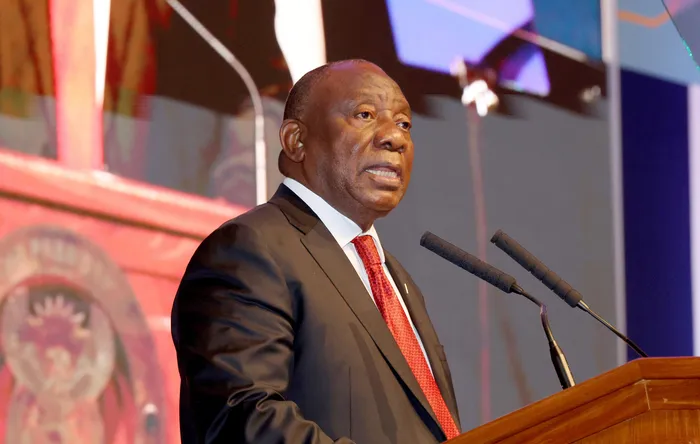
President Cyril Ramaphosa says structural problems are holding back South Africa’s economy
Image: GCIS
President Cyril Ramaphosa stated that structural issues are hindering South Africa’s economic progress, emphasising the urgent need for accelerated growth to generate jobs, enhance services, and maintain the stability of public finances.
His comments follow a recent downgrade from ratings agency Moody’s, which reduced South Africa’s GDP growth forecast for 2025 to 1.5%, down from an earlier estimate of 1.7%.
In recent years, the economy has struggled, growing at an average rate of less than 1% annually. This stagnation has contributed to rising unemployment and a decline in investment.
"Our economy continues to be held back by structural inefficiencies. Our economy needs to grow much faster to create the jobs that we need and to achieve prosperity for all," Ramaphosa said.
Speaking on Wednesday at the launch of Phase 2 of Operation Vulindlela, the president emphasised the need to maintain the momentum of economic reform.
Operation Vulindlela was launched by Ramaphosa back in 2020 to "accelerate the implementation of structural reforms and support economic recovery."
"We need bold, far-reaching reform to revive and reshape our economy. Our immediate priority is to follow through on those reforms that are already underway to realise their full impact," he added.
According to Ramaphosa, Phase 2 of the initiative will focus on three key areas: digital transformation, improving local government administration, and addressing the apartheid legacy of spatial inequality.
"We are going to undertake a comprehensive regulatory review to remove barriers to low-cost housing development and incentivise investment in urban centres as opposed to outlying areas.
"These reforms will help turn our cities and towns into thriving centres of economic activity"
Ramaphosa also outlined the transformation roadmap to drive the adoption of digital technologies in government and build digital public infrastructure that can be used by all South Africans.
"This will include a digital identity system, rapid payments to expand financial inclusion, and enabling people to access services like applying for an ID or passport online"
Related Topics:
